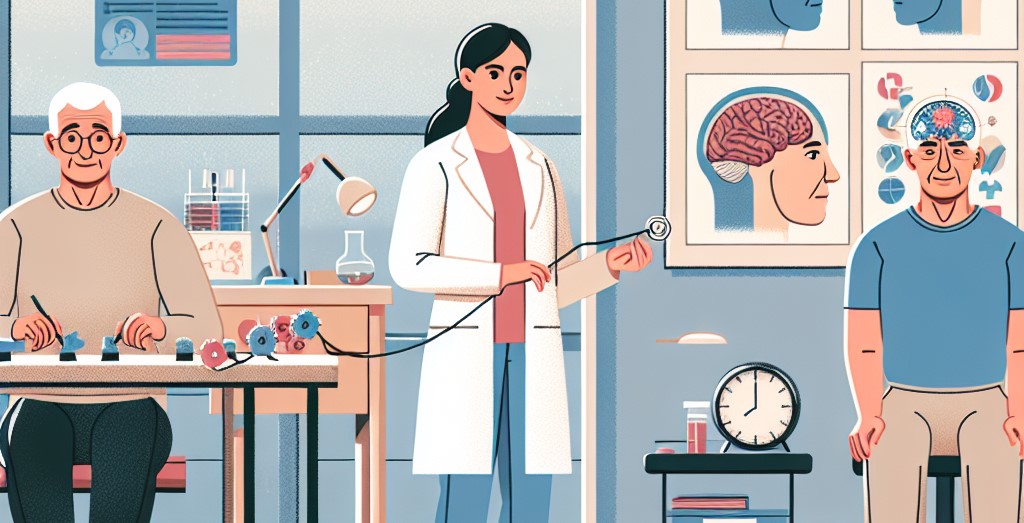
Have you ever wondered how memories are formed and why we forget things? Our brain is an extraordinary organ and has an amazing ability to create, store, and retrieve memories, but not all information we encounter is permanently stored in our memory. To understand memory, we need to look at the different regions and networks of the brain involved in this complex process.
When we experience something new, the information is first processed in the sensory areas of the brain such as the occipital lobe for vision, temporal lobe for hearing, and somatosensory cortex for touch, before being sent to the prefrontal cortex located in the front of the brain for short-term storage.
Short-term memory, also known as working memory, is a temporary storage system that allows us to hold a limited amount of information in mind for a brief period of time. This is the type of memory that enables us to remember a phone number just long enough to dial it or to remember a person’s name during an introduction. If the memory is not rehearsed or transferred to long-term storage, it can easily be forgotten.
On the other hand, if the memory is important and we actively try to remember it, it is consolidated and transferred to the hippocampus for long-term storage. The hippocampus is a brain structure located in the temporal lobe that plays a critical role in the formation of long-term memories. Long-term memories can also be stored in other brain structures such as the amygdala, which plays a role in consolidating memories linked to strong emotions such as fear and pleasure.
The process of memory formation and consolidation is complex and involves a variety of biological processes, including the formation of new connections between neurons, the strengthening of existing connections, and the synthesis of new proteins. These processes are influenced by various factors such as stress, sleep, and aging.
When we want to retrieve a memory, we activate the cortex, the outer layer of the brain that is responsible for perception, thought, and memory. The cortex is involved in the retrieval of both short-term and long-term memories. When we remember something, the cortex retrieves the memory from long-term storage and brings it back to our awareness. The process of retrieving a memory involves reconstructing the information from different parts of the brain and piecing it together into a coherent whole.
Forgetting is a natural process that occurs in our brains, and it can happen for various reasons. Some forgetting is due to interference, where new memories disrupt old memories. Other times, forgetting may occur due to decay, where memories weaken and fade over time if they are not reinforced or used. In some cases, forgetting may also result from inefficient encoding or retrieval of information by the prefrontal cortex from long-term memory storage. Research has also shown that stress, anxiety, and lack of sleep can all contribute to forgetting. When we experience high levels of stress or anxiety, our brain releases stress hormones such as cortisol, which can interfere with memory consolidation and retrieval. Chronic stress and sleep deprivation can also cause structural changes in the brain, particularly in the hippocampus, a region crucial for memory formation and storage.
Interestingly, some memories are more resistant to forgetting than others. For example, emotional memories, such as traumatic experiences, tend to be more vivid and easier to remember than neutral memories. This is because emotional memories activate the amygdala, a region of the brain that is responsible for processing emotions.
Overall, the science behind memory and forgetting is complex and multifaceted, with researchers continuing to make new discoveries and advancements in our understanding of this critical cognitive function. By better understanding the mechanisms that underlie memory, we can develop new interventions and treatments to improve memory function and enhance overall cognitive health.
Momentous Health, a neuropsychology clinic that provides comprehensive cognitive care, from assessment and diagnosis to cognitive rehabilitation and long-term follow-up, all in one place. We understand the impact that cognitive challenges can have on every aspect of life, from work and school to personal relationships and daily routines. Our team of highly trained neuropsychologists work collaboratively with each patient to develop individualized treatment plans that prioritize their specific needs and goals. Visit Momentous Health Website
Take care of your brain, your brain will take care of you.
